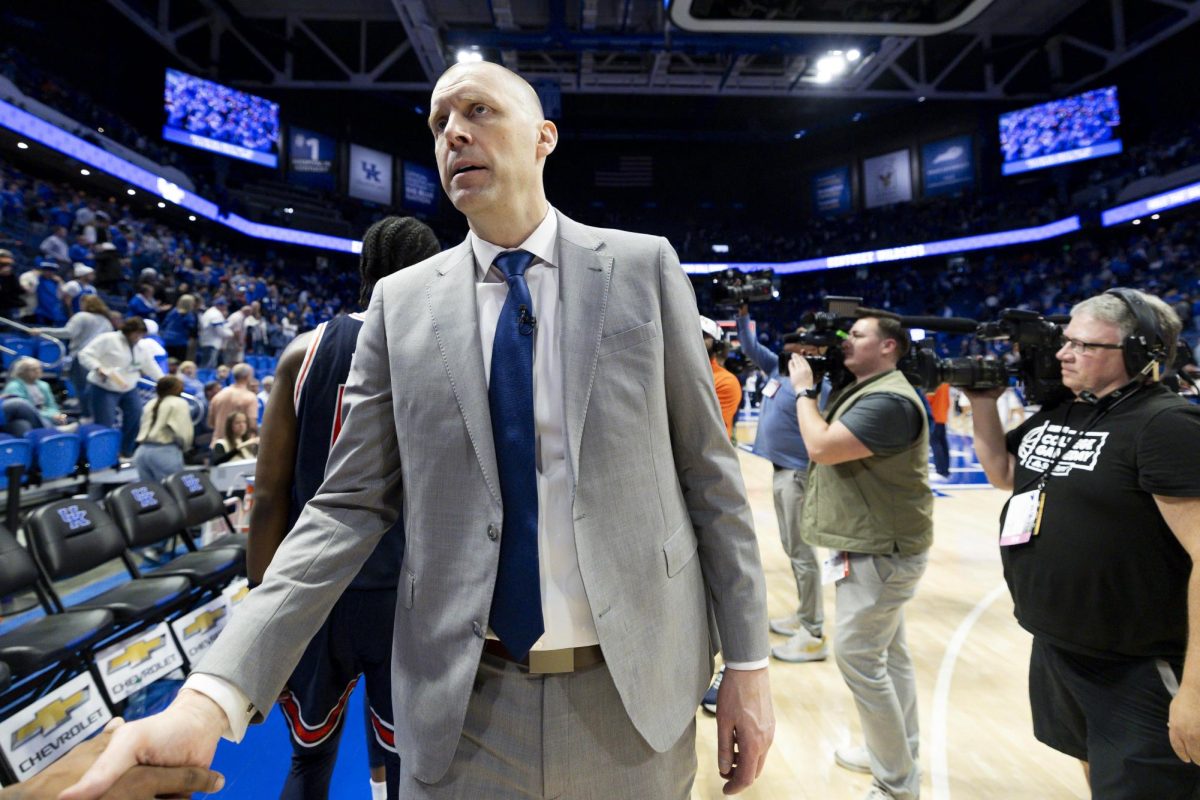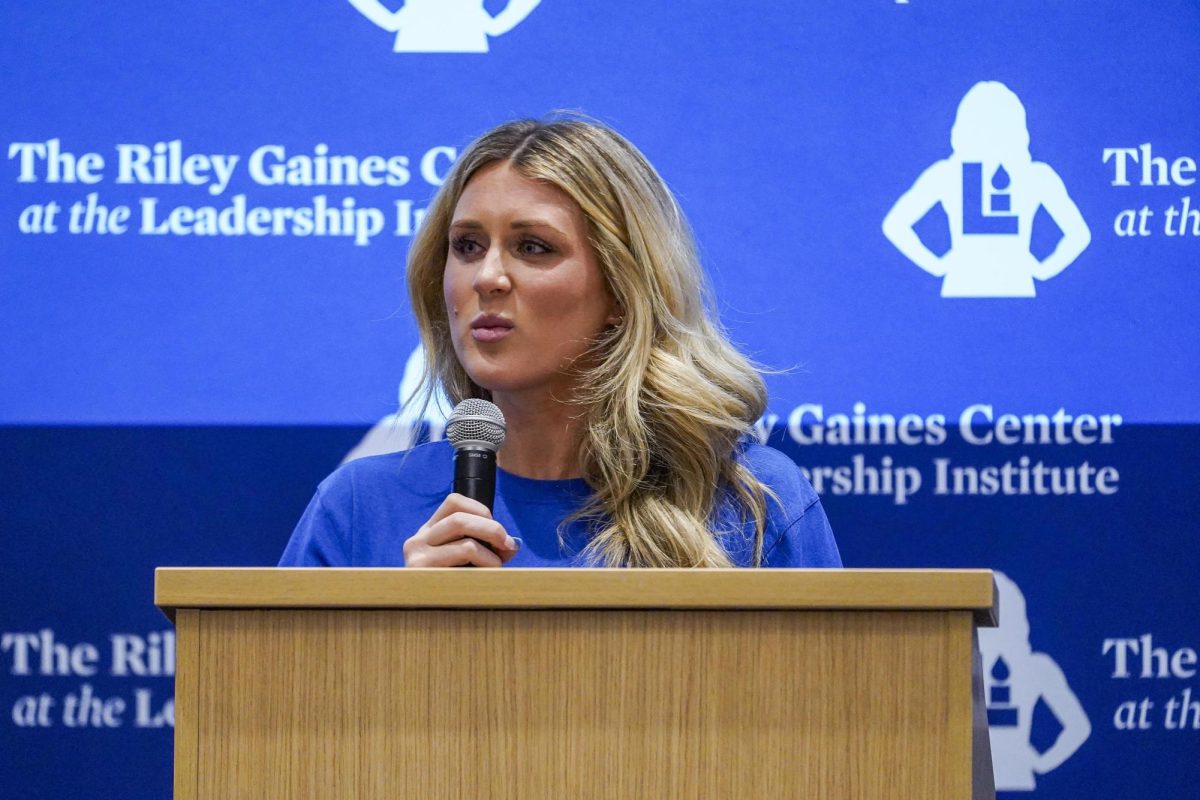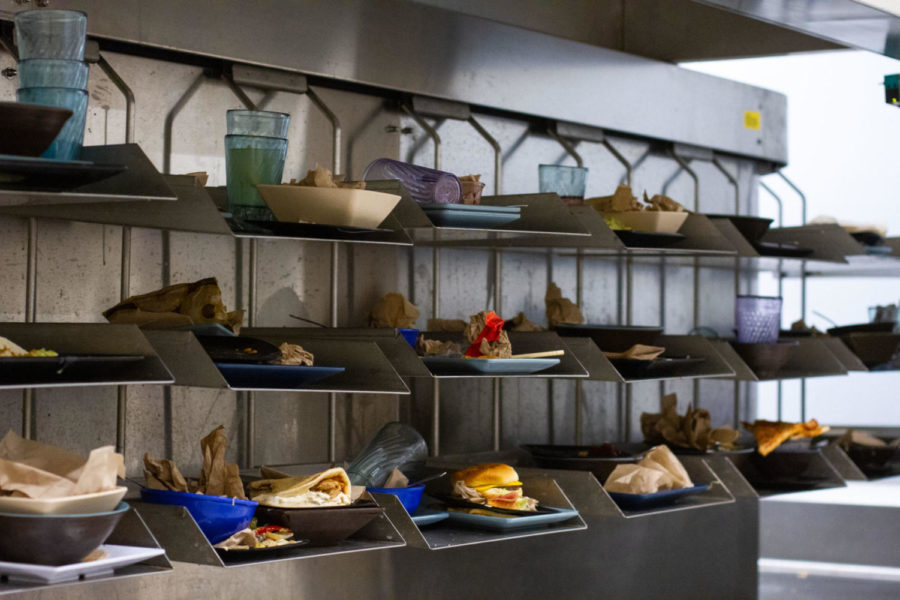UK Dining, student groups seek to eliminate food waste one plate at a time
Plates heaping with post-consumer food waste wait to be cleaned at the Fresh Food Company. According to CKUK’s website, 40% of post-consumer food is wasted each year in the United States. Photo by Sarah Michels | Staff
April 1, 2019
Each year, 1.3 billion metric tons of food, about one-third of all food produced globally, is wasted, data gathered by the United Nations shows. That’s about 358 pounds of food waste for every person in the world per year— almost a pound of waste per day.
The United Nations and other international institutions have begun work to reduce this figure with the cooperation of global leaders. But change is also beginning here on campus, at the nearest UK dining hall.
Aramark, the food provider UK partners with for dining, and UK Dining have teamed up over the past few years to promote environmental sustainability with the aim of reducing food waste by half by 2030, UK Dining officials said. Their platform, Green Thread, includes a variety of programs designed to maximize efficiency and minimize waste.
“We have practices in our production to reduce the amount of food waste, overproduction and over-purchasing, so we try not to have too many leftovers,” said UK Dining Sustainability Manager Carolyn Gahn.
Currently, one of their main focuses is the elimination of single-use plastics, Gahn said. For $5, each UK dining hall offers students reusable Green-to-Go boxes, which they can later exchange for clean ones. This, paired with the use of non-plastic silverware and cups, saves a substantial amount of plastic throughout the school year.
However, Aramark and UK Dining are constantly looking for room to improve. This year, the Sip Smarter campaign rolled out in conjunction with a nation-wide campaign to reduce straw use. Its goal is to shift all on-campus dining to renewable resource straws or no straws at all in the next few years.
One sustainability improvement scheduled for the more recent future is a composting program, which will begin its pilot program the second half of the 2019 Spring Semester, Gahn said. The program, a result of the collaboration between the UK College of Agriculture, UK Recycling and UK Sustainability, will gather food waste from residential dining locations to be composted at a university farm.
This recycling of food scraps such as apple cores that are otherwise inherently wasted is connected to UK Dining’s broader attempt to reuse as many leftovers as possible. But if UK Dining misses anything, Gahn said, “Campus Kitchen will pick up anything extra that we have.”
Campus Kitchen at UK is a student-run organization aligned with the national Campus Kitchens Project, whose mission is to eliminate food waste on college campuses.
They do this by recovering leftover food from dining halls, local retailers like Whole Foods and on-campus events.
After processing the leftover food, they cook what’s salvageable into new healthy meals, which they deliver to locations including the Lexington Housing Authority, Big Blue Pantry, and the Griffith-Ballard Towers, said Anisah Arain, one of Campus Kitchen’s shift captains.
Every Wednesday from 11 a.m. to 1 p.m. in Funkhouser, Campus Kitchen also hosts Farm to Fork, serving free nutritious lunches for anyone who needs or wants one.
“I think a lot of kids are not very aware of just how big food insecurity is at UK but there’s actually a decent amount of students who go to these Farm to Fork things or the Big Blue Pantry,” Arain said.
According to a survey conducted by the UK Food and Housing Security Workshop, 43 percent of UK students reported some level of food insecurity. UK administrators openly doubt the survey, which has helped to bring awareness to the food insecurity issue.
How can UK students help alleviate the issue of food waste? For Gahn, it begins by voting with your dollars.
“We don’t think about that enough— the power we have as consumers. Especially with produce, buying celery, for example, from the farmers’ market would be a better choice than buying it from the grocery store because the farmer is not trimming the product to fit into a particularly sized package, which is what’s happening on a larger scale,” she said. “There’s a lot of food waste that we don’t even realize is happening, that is just left on a field at the farm.”
Arain echoed this sentiment, saying, “Be reasonable with what you buy; a lot of times your eyes are bigger than your stomach.
Arain agrees with the message of the Fresh Food Company’s new signage: “You can always go get more at a dining hall; it’s never a problem.”

























































































































































